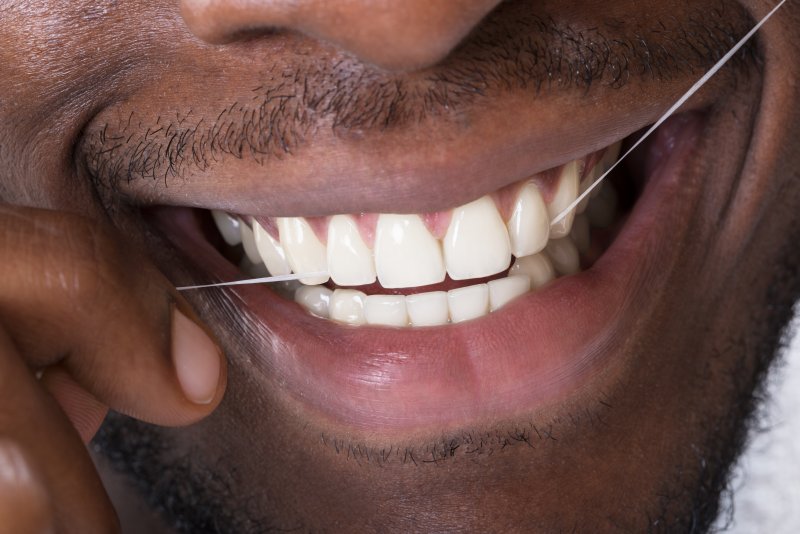
At your last routine checkup, were you told that you need to start flossing more often? If so, you probably plan on flossing more in 2023. However, that can be easier said than done for some people. Maybe you think you don’t have enough time or it’s painful for you to clean between your teeth. Well, you shouldn’t let these excuses get in the way of a healthy smile. Flossing is crucial for optimal oral health, which is why it should be at top of your list of New Year’s resolutions. Read on to learn more about its importance and some tips to help you get started.
Why is Flossing Important?
Everyone knows that brushing is essential for a healthy smile. While it’s certainly a crucial step in your oral hygiene routine, it’s not good enough on its own. There are certain areas in your mouth that your toothbrush can’t reach no matter how hard you try. Fortunately, dental floss can effectively clean these nooks and crannies in your mouth.
Flossing once a day is incredibly important to remove food particles, plaque, and bacteria from between teeth and underneath the gumline. If you fail to do it regularly, you may develop plaque buildup. By cleaning between your teeth every day, you can significantly lower your risk of tooth decay and gum disease.
Tips to Help Make Flossing a Daily Habit
When trying to incorporate something new into your routine, it’s easy to fall off track. You can make the process a breeze with the following tips:
Find Out Why You’re Not Flossing
It’s important to ask yourself why you’re not flossing. Is it because you’re too tired to do it at night? Or because you don’t like to? Once you figure it out, you can come up with an appropriate solution. For instance, you can set a timer to go off just before bed so it doesn’t slip your mind. If you don’t like flossing, you can try a new way of doing it that will make it easier and more pleasant.
Set a Realistic Goal
It won’t be easy to go from never flossing to flossing daily overnight. However, you can take baby steps to get to where you want to be. Start by flossing twice a week and gradually work your way up to flossing once a day.
Know the Risks of Not Flossing
Failing to floss regularly will increase your risk of gum disease. If that happens, your condition can leave you with gum recession, loose teeth, or even tooth loss. In fact, it’s also linked to other general health problems like diabetes, heart disease, and premature labor for pregnant women.
Reward Yourself
It can be a challenge to switch up your normal habits. Make sure you allow yourself to have a little treat every now and then to congratulate yourself for all your hard work.
About the Practice
At Dr. Glen’s Happy Teeth, we’re dedicated to making every patient feel informed and relaxed during each appointment. Our team will always prioritize your comfort, ensuring you get the best experience possible. If you’d like more tips to help you floss more often, don’t hesitate to reach out. You can speak to an experienced team member via our website or call (516) 517-0331.


